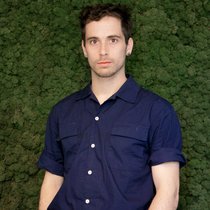The use of artificial intelligence (AI), robotics, big data, and sensors – to name a few new technologies – can potentially improve the quality of life in the city and enhance sustainability, livability, citizen engagement and empowerment. Simultaneously, these novel technologies are intertwined with central values for society and citizens, such as autonomy, privacy, transparency, inclusiveness and empowerment.
With our Responsible Urban Digitization program, we research, develop and integrate these innovative data science technologies to help solve urban challenges. At the same time, we explore how to embed society’s public and democratic values in the design of these innovations.
The scan car as a use case
One such example of sensing technologies used in cities are “scan cars”. These vehicles are equipped with sensors to collect data on the urban environment. Scan cars are becoming increasingly smart to improve efficiency and help the municipality to carry out tasks – from parking policy enforcement to waste registration.
But apart from making the city more efficient and clean, we question and explore what public and democratic values should be embedded in the implementation of these scan cars. For example, with regard to their purpose of urban data collection, could scan cars be designed in a way that makes them (more) transparent, understandable or even contestable by citizens? In other words, what features could make these vehicles more “human”?
“Urban data sources and technologies are rapidly expanding into new corners of our everyday experience. To illustrate, scan cars drive around the city to, for example, register parking violations or waste in the city. This is considered ideal in terms of efficiency. But is it just about efficiency?”
To delve into the aforementioned, we joined forces with UNSense and organized a design sprint. UNSense is a design/strategy organization, founded by UNStudio, that focuses on improving people's living conditions and making buildings and cities more humane and healthier. To realize this, they perceive technology as a design tool.
“Design should play a role in guiding the perceptions of, and interactions with, automated sensing systems in the city. Going through this process with AMS Institute's researchers and public servants, we’ll be able to bend the design towards a more consciously chosen, collectively desirable future.”
Tessa Steenkamp | Sensorial Experience Designer | UNSense

4 designs that showcase “the scan car of the future”
Together with UNSense, we invited representatives from the City of Amsterdam and Rotterdam, TADA and researchers from TU Delft to join us for a 3-day sprint to design “the scan car of the future”, that also looks at the human and fair values of the advances in technology.
During these sessions, several design strategies were explored. Among others, participants investigated if the sensing the car does could be minimized, if function(s) of the car could become more understandable and what features could be added to possibly bring about benefits for the individual – being the citizens of Amsterdam.
To get a full impression of this design sprint, you're welcome to download this booklet. Ultimately, by leveraging the diverse backgrounds and areas of expertise of the participants, UNSense created four design proposals that rethink the existing model of human scan cars and data collection in the city.
These designs are built on a scale ranging from being transparent, legible, relatable, contestable to actionable:
Expanding on existing system | What if civilians could receive instant fine notifications via existing (mobile) apps when a scan car registers that one did not pay or parked incorrectly?
See like the scan car | Could “function icons” be added to vehicles that show – and thus communicate to civilians – for what purpose it is presently collecting data?
Scan car as a neighbor | Would it be possible for residents to communicate with the cars when they’re located in a 300-meter radius via an app?
Gesture-based polling | Could interactions be enabled with a moving vehicle is further explored: is it’s possible to have a sensor car recognize gestures of people passing by and take note of their responses?
“It’s exciting to see so many people across different departments and fields passionate about steering the future of tech in cities in the right direction. The challenge here is how to embed these values within the decision-making and budgeting processes of organizations.”
Connor Cook | Sensorial Experience Designer | UNSense

“The energy in the sessions was impressive; it’s an indication that we’re on to something. When people from different backgrounds come together and share their expertise, people tend to be more open and creative. It’s great to see what cool ideas you come up when people from different sectors join forces.”
What about the next steps?
AMS Institute will work towards more explorative research and a prototype to investigate whether these designs could be used for pilot testing. And, regarding the latter, we're currently in the midst of preparing for the launch of something very exciting... Keep an eye on our website and social channels for these developments.
Sign-up, train and launch your start-up
In the meantime: do you have an innovative idea to create a resilient, sustainable and just city yourself? We invite you to participate in ClimateLaunchpad. This challenge is open for innovative ideas in renewable energy, energy efficiency, food and agriculture, water management, mobility, industrial technology or in any other field, as long as your idea addresses the issue of climate change or facilitates a more sustainable urban environment.
Call closes Sunday May 17th, 23:59h. An online course scheduled for 20th May. Bootcamp scheduled for June 2, 3, 4. Sign up, train and launch your start-up!